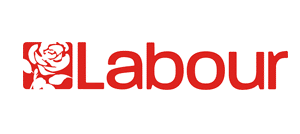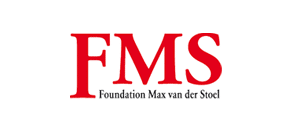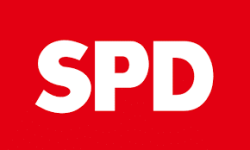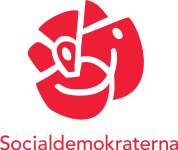Bosnia and Herzegovina
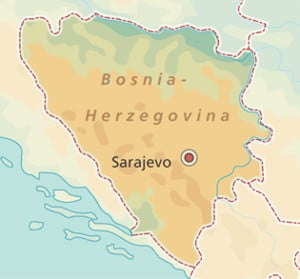
The third and largest ethnic group, the Bosniaks, heavily oppose this initiative. With regards to EU integration, Bosnia-Herzegovina is lagging behind other countries in the Western Balkans, because it is unable to implement the requested reforms. Under the current constitution, established in the DPA, the decision-making process follows ethnic lines. This causes a complex system of national and entity-level decision-making, making it very hard to find the consensus needed to work on further EU integration. On 12 October 2022, the European Commission announced that it will recommend granting Bosnia Herzegovina candidate status. In its recommendation, the European Commission formulated eight points on which the Bosnian political system should take steps. However, since then, tensions have been growing among the different entities of Bosnia and Herzegovina.
-
Want to get notified by mail when this country gets updated?
Subscribe to our newsflash below!
Key Info
1 Political Situation
The Dayton Peace Agreement (DPA) signed in 1995 to end the war in Bosnia Herzegovina (BiH), determined the Bosnian constitution. As a result, the political system is complex and inefficient. The country is composed of two political entities, Republika Srpska (49 percent of the territory) and the Bosniak-Croat Federation (51 percent of the territory). The Federation is divided into ten cantonal units. A 2013 census revealed that with approximately 50%, the Bosniaks make up the largest ethnic group. Serbs make up about 31% of the country’s population, with the Croats around 15%. The country’s institutions, which are there to support the stability of the country, are constructed taking into consideration these ethnic divides.
As such, BiH is a highly decentralised state with a mixture of a parliamentary and presidential political system. Each political unit has its own governing body, accumulating 700 elected state officials and more than 140 ministers. The consequence is that the state system measures approximately 60% of the state budget. The EU High Representative, German diplomat Christian Schmidt, is working with the institutions of Bosnia and Herzegovina, reports to the UN on the situation in the country, and is the highest authority within BiH. In the following, the Federation of BiH will be referred to as FBiH and the Republic Srpska will be referred to as RS.
1.1: Political division
Dodik’s ruling Serb SNSD is supporting the ruling Croatian HDZ in their demand for a Croatian entity, while the ruling Bosniak SDA sees this dynamic as proof that Croats and Serbs want to divide BiH, something they say will, and cannot, happen peacefully. It is this dynamic that puts all issues in an ethnic jacket from which the ethnic parties profit. Even if citizens know the party of their choice is corrupt and will bring no change to their socioeconomic position, they tend to vote because of the ethnic profile of the party.
The presumption by the international community that the continuous reduction of international supervision and the magnetic attraction of EU integration would convince Bosnia’s political leaders to pursue the rigorous reforms necessary for EU accession has proven to be illusory. If anything, the opposite has been the case. Negotiations to amend the existing constitution, established by Dayton, to strengthen state institutions and transform the country into a non-ethnic parliamentary democracy, have so far failed to make much progress. The advice to start negotiations offers perspective and possibly provides additional motivation to push through reforms.
1.2: Presence of the international community
The presence of the international community is coordinated through the Office of High Representative for BiH (OHR) which is the state’s ultimate authority, responsible for overseeing the implementation of civilian aspects of the Dayton Peace Agreement. The international community’s High Representative (HR) in BiH, German diplomat Christian Schmidt, assists the authorities of the country to implement the five objectives and two conditions set out by the Peace Implementation Council (PIC). The PIC was established during the Dayton Accords.
The Steering Board of the Council provides the HR with political guidance. However, it has proven to be difficult to reach a consensus on main issues among members of the PIC Steering board which consists of Canada, France, Germany, Italy, Japan, Russia, the United Kingdom, the United States, the Presidency of the European Union, the European Commission and the
Organisation of the Islamic Conference represented by Turkey. Therefore the position of the HR on certain issues is vague. The HR’s office must stay in place until the set goals have been achieved and ensure implementation of the 1995 Dayton Accords, which include “peaceful coexistence within one single state of different ethnic communities”. When these goals are achieved, the HR will be replaced by an EU Special Representative for BiH. The EU Delegation to Bosnia and Herzegovina, headed by Peter Sorensen, has increasingly taken up several tasks and is the second-largest delegation in the world.
1.3: The road to EU-membership
BiH is lagging behind in the EU integration process compared to its neighbours. The country did not succeed in implementing reforms that would move the country further towards EU accession and the political elite (mostly in RS) has an interest in containing the status quo. The constitution that is based on ethnic division and the unwillingness of the political elite to change it has proved to be a major obstacle. As a consequence, the EU’s strategy regarding the country changed from reform-related conditionality to socioeconomic challenges it faced.
Bosnia & Herzegovina signed an association agreement with the EU in 2008, applied for membership in February 2016 and was granted candidate membership in December 2022. In the new 2023 report, the European Commission recommended starting accession negotiations, but fourteen criteria dating back to 2019 must first be met. The EU is not yet satisfied with the progress of reforms, stating that BiH has yet to prove itself in many areas. No progress has been made in fighting corruption and progress against organised crime is limited. Bosnian authorities still lack capacity and coordination is too negligent to deal with organised crime. Economically, Bosnia & Herzegovina is not in compliance – reforms are very limited in the areas of the informal economy, unemployment and the business environment. The economy is not yet adjusted to the level of competition and functioning of the EU single market (BiH’s own single market also requires reform). The constitution is not yet fully aligned with the European Convention on Human Rights. However, steps have been made on foreign policy – it is more in line with that of the EU despite internal discussions on Russian sanctions. Reforms are also still needed in the areas of democracy, rule of law, freedom of expression and media freedom in line with EU law. The latter two mainly refer to the situation in Republika Srpska, one of the two administrative parts of the country, where the dreaded ‘foreign agents’ law that restricts civil society work may be introduced.
1.4: Tensions in Republika Srpska
Since November 2022, Milorad Dodik has been the President of Republika Srpska, which is one of the two highly politically autonomous entities of Bosnia and Herzegovina. He has been in power for over 25 years through various governing positions. Dodik, who is one of Putin’s key European allies, is known for his hardline Serb nationalism, pro-Russian politics, separatism, and West-defying rhetoric. He has explicitly stated that he wishes that “Serbia and Republika Srpska become a joint state one day” and has threatened to declare the Republika Srpska independent from the rest of Bosnia.
His anti-constitutional politics are also negatively affecting minorities: in April, he announced an anti-LGBTQI+-law, to ‘protect traditional family values’. Because of the destabilisation Dodik brings to the territorial integrity and democratic values of Bosnia and Herzegovina, he has been under US sanctions for over a year. In addition, Bosnia’s top court has tried restraining him by repeatedly repealing his parliament’s laws.
In March 2023, while enduring strong criticism on the law criminalising defamation, parliament in Republika Srpska went through with its adoption. On Thursday 23 March, the bill was passed after a 48-21 vote. The bill moves defamation from civil law to criminal law, meaning suspected violators can be tried by a government.
Fines under the new law can range from 5.000 to a staggering 20.000 Bosnian marks, the equivalent of 2.500 to 10.000 euros. That amount, however, can rise up to the equivalent of 25.000 euros if the act is committed via “print, radio broadcast, television, at a public gathering or in any other way.” In Bosnia-Herzegovina – one of the poorest European countries – such amounts are considered particularly huge.
Civil rights groups, media and international organisations have overwhelmingly advised against the law, fearing it will limit freedom of speech and independent journalism. In a statement, Transparency International warned that “defamation is frequently used as a justification to curtail dissent.” The bill, furthermore, “allows for arbitrary interpretation of what constitutes an insult” and “seems designed to encourage censorship and block criticism of powerful figures”.
In a reaction, Republika Srpska President Milorad Dodik denied the critics: “It is directed against those who misuse the public space and modern information space through anonymous and other means, and we will try to establish accountability for this.”
On the same day, Dodik’s government released another statement announcing the treatment of a controversial foreign agent law. This proposed bill would force foreign-funded NGOs to apply to a registry and report on their activities. The draft law is particularly controversial for its similarity to a Russian bill introduced in 2012, which is considered as the start of the countries’ crackdown on civil liberties.
On 24 March, Republika Srpska made the headlines again following its break of diplomatic ties with both the United States and the United Kingdom. The government disclosed that it accuses both countries of “interfering with the internal Bosnian affairs.”
The decision is almost certainly a reaction to the British-American sanctions imposed on Osman Mehmedagic – the former head of the Bosnian intelligence and security agency – and Dragan Stankovic – a longtime political ally to Dodik. Mehmedagic allegedly used state-owned telecommunication companies to spy on rival politicians, whereas Stankovic was the main architect behind a law in violation of the Dayton Peace Agreement (1995). According to US Treasury department official Brian Nelson: “[Mehmedagic] constitutes a threat to regional stability, institutional trust, and the aspirations of those seeking democratic governance in the Western Balkans.”
In a reaction, the US embassy branded Dodik’s latest decision a “step down the dangerous path that he has chosen – a path of isolation and authoritarian rule.” The British embassy vouched to “continue to work for the benefit of all citizens of this country.”
In May 2023, the parliament of Republika Srpska voted to stop the ethnic Serb entity’s participation in the Constitutional Court of Bosnia-Herzegovina amid rising tensions with the central government over a property law. Bosnian Serb leader Milorad Dodik threatened numerous times to push for the independence of Republika Srpska unless the clash over the country’s assets will be in favor of the Serbian region.
In June 2023, Republika Srpska’s parliament passed the ‘Law on the Non-application of Decisions of the BiH Constitutional Court’. This law implies that the Constitutional Court of Bosnia and Herzegovina’s decisions will not be implemented in Republika Srpska.
Christian Schmidt, the High Representative of the International Community for Bosnia and Herzegovina, responded a day later, announcing that he will not accept Dodik leading Republika Srpska into isolation and that he will try to counter his actions. The US Embassy to Bosnia and Herzegovina also responded by tweeting that “The Republika Srpska National Assembly carried out a reckless attack on the Dayton Peace Agreement and the BiH Constitution it established by adopting the Law on the Non-Enforcement of Decisions of the Constitutional Court of BiH”.
Eventually, on the 1st of July, Schmidt repealed the law and implemented changes to the Criminal Code of Bosnia and Herzegovina, in order for it to treat acts that are violating the constitutional order of the state as a criminal offence. Furthermore, Schmidt urged international partners to collaborate on implementing sanctions against those who disregard the Dayton Agreement. He also emphasised that entity assemblies lack the authority of state institutions.
The day after, on the 2nd of July, Dodik further escalated the situation by announcing that his parliament would not accept the decisions of the Prosecutor’s Office of Bosnia and Herzegovina, the Court of Bosnia and Herzegovina, and SIPA. Through Twitter, he also called for a referendum on the secession of Republika Srpska. His reasoning: “What Christian Schmidt did yesterday is nothing more than part of a well-designed plan to discipline Republika Srpska, to make its president a monster, an unreasonable person, a man who cannot be talked to, and all of this is supported by the EU in the form of Johannes Sattler” In addition, said that Schmidt, whose decisions would be disregarded with Dodik’s new laws, is a “false high representative” and that Republika Srpska will leave BiH if forced by Sarajevo.
On the 20th of July 2023, Dodik decided to further worsen tensions by having the Bosnian Serb parliament pass a law which recriminalises libel. This law, which Dodik himself championed, may severely threaten free speech, restrict freedom of expression, and silence media and opposition. Furthermore, the fines for libel are extraordinarily high. The Transparency International group in Bosnia reacted by saying that “the authorities in Republika Srpska [have] entered a phase of open repression over the citizens and [have] joined the worst authoritarian regimes in this part of the world”. Bosnian Serb journalists have been responding by organising numerous protests.
On 11 August 2023, Bosnia charged Dodik with defying decisions by the international official overseeing peace in the country, the state prosecutor’s office said. Any official in Bosnia who fails to implement a decision of the international High Representative or obstruct it in any way can be jailed for from six months to five years under rules brought in to prevent the country sliding back to war.
1.5: Female representation and women’s rights
The authorities in BiH seem to have little interest in addressing the human rights problems, which the country has been struggling with for many years now. During the Bosnian War and Bosnian genocide, women suffered from mass sexual violence. Estimates of rape range from 12,000 to 50,000. In 2020 the Elimination of Discrimination against Women (CEDAW) still concluded that the country had failed to conduct adequate investigations into conflict-related sexual violence and compensations were often dissatifactionary. There have been improvements since the War though, with the 2003 adopted Gender Equality Law. In theory, the constitution ensures equality between men and women now.
In practice, society remains much committed to traditional gender roles. To illustrate, although the constitution states that 30% of political candidates need to be female, this number was less than 20% during the local elections of 2020. On a national and regional level, about 26% of those elected are female. However, there has been a trend towards more women in local politics in recent years, supported by the Westminster Foundation for Democracy (WFD) and the OSCE. They are paving the way for more gender equality. Just like in many of the world’s countries, the COVID-19 pandemic and following government restrictions led to an increase in domestic gender-based violence.
1.6: LGBTI rights
LGBTI people still need to deal with discrimination and face challenges that non-LGBTI people do not. However, especially in recent years, BiH has seen quite some improvements when it comes to LGBTI rights. As it is one of the guarantees for becoming a full EU member, in 2016 the government adopted a comprehensive anti-discrimination law, making it illegal to discriminate against someone based on sexual orientation, gender identity, and sex characteristics. Since 1996 homosexuality has been legal, with BiH’s different entities following in the years afterward, but there is still no legal recognition of same-sex couples on a national level. The government has been considering adopting this since 2018 though and might follow the example of neighbouring Montenegro.
Religion continues to play an important role in Bosnian society, which has negative implications on the attitudes toward the LGBTI community. LGBTI events often end up in violence, with the 2008 Queer Sarajevo Festival being the most notable example. A 2017 poll by Pew Research showed that 13% would support same-sex marriage, with 84% opposing it. The trend has been positive though. The second Sarajevo Pride march took place in August 2020, without any major incidents. LGBTI activists saw an increase in online threats during the march through. Like in many other countries, the COVID-19 pandemic marked a year that saw an increase in violence against LGBTI people.
1.7: Political System
Bosnia and Herzegovina (state-level)
The parliament consists of two houses. The House of Peoples has 15 delegates: five for each ethnic group. The Serb representatives are appointed by the parliament of the RS and Bosniaks and Croats are employed by the parliament of the F BiH. The House of Representatives has 42 members. Two-thirds are elected from the F BiH and one-third from the RS by regular elections for a four-year mandate. Their role is to adopt the state budget, to elect the government on the proposal of the presidency, and to adopt laws. The government is presided over by a prime minister with the official title of Chairman of the Council of Ministers. As both entities also have a prime minister, it is important to understand the difference and on which level these Prime Ministers operate.
The Presidency
BiH has a presidential system in which the position is shared among three members who represent the main ethnic groups of the country (Bosniak, Serb and Croat). The members of the presidency are elected by direct election for a four-year mandate. The Serb member of the presidency is elected from the RS and the Croat and Bosniak members are elected from the FBiH. They rotate every eight months on ethnic principles.
Federation of Bosnia and Herzegovina (entity)
Similar to the state level, entity F BiH has a two-house parliament. The House of Peoples has 58 delegates elected from ten cantonal assemblies: 17 Bosniaks, 17 Croats, 17 Serbs, and 7 other nationalities. Its role is to protect the ethnic interests of the represented ethnic groups. The House of Representatives has 98 members elected directly from election districts on open lists. The FBiH’s leader is the Prime Minister. However, in a surprise move following the 2022 general elections, Schmidt introduced changes to the electoral law in FBiH. The number of delegates in the House of Peoples will be upped to 80. Accordingly, it will comprise 23 Bosniaks, Serbs, and Croats along with 11 Others. The increase allows ‘Others” to select a representative from each canton, which was not the case before. Hence, Bosniaks decide which Bosniak delegates from a particular canton go to the People’s House, Serbs elect Serbs and Croats elect Croats, and the Others do the same. Previously, all the assemblies in each canton decided which ethnic representatives would go to the People’s House, now it is only their ethnic caucus that approves the delegates.
Republic Srpska (entity)
RS has a two-chamber parliament as well, consisting of the Council of Peoples and the National Assembly. The Council of Peoples has the same responsibilities as the House of Peoples in F BiH but has a different structure. There are four ethnic clubs: 8 Serbs, 8 Bosniaks, 8 Croats, and 4 other elected municipal councils because there are no cantons in RS. The national assembly has 83 members elected for a four-year term, around three-quarters elected in multi-seat constituencies, and one-quarter through compensatory lists. RS also has a prime minister, but other than FBiH also has a separate president.
In addition, to the entities of RS and FBIH, the district of Brcko exists self-governing administrative unit, established as a neutral area under joint Serb, Croat, and Bosniak authority.
Current system
| State Level | |
| Bosniak president – Denis Bećirović | Social Democratic Party of Bosnia and Herzegovina |
| Croat president – Željko Komšić | Democratic Front |
| Serbian president – Željka Cvijanović | Alliance of Independent Social Democrats |
| Chairman of the Council of Ministers – Zoran Tegeltija | Alliance of Independent Social Democrats |
| Entity level | |
| RS | |
| President – Milorad Dodik | Alliance of Independent Social Democrats |
| Prime Minister – Radovan Višković | Alliance of Independent Social Democrats |
| F BiH | |
| President – Marinko Čavara |
Croatian Democratic Union of Bosnia and Herzegovina |
| Prime Minister – Fadil Novalić | Party of Democratic Action |
2 Elections
2.1: Parliamentary and presidential elections 2022
On Sunday, October 2, Bosnia and Herzegovina (BiH) went to the polls for the general elections, including presidential elections and elections for the House of Representatives. There were fewer political shifts than anticipated beforehand, with a consolidated dominance of nationalist parties among all three ethnic groups. As a result, reformists and multi-ethnic parties seem to be forced back into the opposition.
The newly elected triplet of Presidency Members consists of Serb member of Presidency Željka Cvijanović (SNSD), who took over the position from her party leader Milorad Dodik. Non-nationalist Croat member Željko Komšić (DF) won against Borjana Krišto (HDZ BiH) and maintains his position as a member of the presidency. Meanwhile, Denis Bećirović of the multi-ethnic Social Democratic Party (SDP BiH) won against nationalist Bakir Izetbegović (SDA) for the position of Bosniak member of the Presidency. The choice for Bećirović over Izetbegović is a partial split from the nationalist-dominated political system that has prevailed in BiH for years. It is also an indication that the centre-left candidates (besides Cvijanović) who ran an anti-corruption campaign have been chosen for the seats.
The 2022 general elections in Bosnia and Herzegovina showed that there is a small split in voting among ethnic lines in parts of society. Especially the election of Becirovic is a sign that multi-ethnic candidates are able to successfully run for office. However, this progress remains relatively small and does not prevent the domination of nationalist parties in the Bosnian political system. Most Bosnians still mainly cast their votes along ethnic lines, and ethnic-nationalistic parties again hold a majority in all parliaments and presidential seats. The SDP and other multi-ethnic parties have experienced some growth and do form the biggest political actor within the Bosnian political landscape, but are most likely not in the driving seat to form a coalition government. The 2022 election shows that there are people in the country who would like to see a change in multi-ethnic politics and reform. Hopefully, this trend will further continue, and multiethnic parties will gain more ground in the future. For the new government, however, the chance of tangible reforms being carried through is not much higher than it was in the past years.
Official results BiH House of Representatives
Votes are accumulated from both FBiH and RS. Hence, a higher percentage of votes does not automatically mean a higher number of seats due to the division between both FBiH and RS.
| Party | 2022 | Seats | 2018 |
| Party of Democratic Action (SDA) | 17.2% | 9 | 17% |
| Alliance of Independent Social Democrats (SNSD) | 16.3% | 6 | 16.0% |
| Croatian Democratic Union (HDZ BiH) | 8.8% | 4 | 9.1% |
| Social Democratic Party (SDP) | 8.2% | 5 | 9.1% |
| Serb Democratic Party (SDS) | 7.1% | 2 | 9.8% |
| Democratic Front – Civic Alliance (DF-CU) | 6.4% | 3 | 5.8% |
| People and Justice (NiP) | 5% | 3 | 1.4% |
| Party of Democratic Progress | 4.6% | 2 | 5.1% |
| Our Party (NS) | 3.1% | 2 | 2.9% |
| People’s European Union-For New Generations (NES) | 3% | 2 | New |
| For Justice and Order | 2.1% | 1 | New |
| Democratic Union (DEMOS) | 1.9% | 1 | New |
| United Srpska (US) | 1.6% | 1 | – |
| Bosnian-Herzegovinian Initiative (BHI KF) | 1.3% | 1 | New |
| Socialist Party (SP) | 1.5% | 0 | 1.9% |
Official results Republika Srpska entity parliament
| 2022 | 2018 | |
| Union of Independent Social Democrats (SNSD) | 34.6% | 31.8% |
| Serb Democratic Party (SDS) | 15% | 18% |
| Party of Democratic Progress (PDP) | 10.3% | 10.2% |
| Socialist Party (SP) | 5.9% | 8.2% |
| State Movement | 5.7% | New |
| Democratic Union (DEMOS) | 5.5% | New |
| Democratic People’s Alliance (DNS) | 4.5% | 14.4% |
Results Republika Srpska Presidency
| 2022 | |
| Milorad Dodik (SNSD) | 47.06 % |
| Jelena Trivić (PDP-SDS) | 42.48 % |
Official results Federation of Bosnia and Herzegovina parliament
| 2022 | 2018 | |
| Party of Democratic Action (SDA) | 24.4% | 25.2% |
| Social Democratic Party (SDP) | 13.5% | 14.5% |
| Croatian Democratic Union (HDZ) – coalition | 13.4% | 14.4% |
| Democratic Front – Citizens’ Union | 11% | 9.4% |
| People and Justice – Pensioner’s Party BiH (NiP-SPU) | 6.9% | 2.3% |
| Our Party (NS/HC) | 5.2% | 5.1% |
| People’s European Union (NES) | 4.3% | New |
| Party for Bosnia and Herzegovina | 3.7% | 2.3% |
| Union for a Better Future (SBB-BiH) | 2.8% | 7.1% |
Official results rotating presidency
| Bosniak Member | Croatian member | Serbian Member |
| Denis Bećirović (SDP)
57.37% |
Željko Komšić (DF)
55.80% |
Željka Cvijanović (SNSD)
51.65% |
| Bakir Izetbegović (SDA)
37.25% |
Borjana Krišto (HDZ-BiH)
44.20% |
Mirko Šarović (SDS)
42.74% |
| Mirsad Hadžikadić (PzP)
5.38% |
N.a. | Vojin Mijatović (SDP)
1.86%
|
Election observers
A joint observer mission of the OSCE Office for Democratic Institutions and Human Rights (ODIHR), the OSCE Parliamentary Assembly (OSCE PA), the Parliamentary Assembly of the Council of Europe (PACE), the NATO Parliamentary Assembly (NATO PA) and the European Parliament (EP) has concluded that the legal framework provides a sufficient basis for organising democratic elections. Nonetheless, OSCE issued a statement pointing out that failed reform efforts, widespread distrust in state institutions, and ethnically divisive rhetoric continued to characterise the electoral climate.
According to one of the leading members of the main Bosnian election monitoring coalition, Pod Lupom, 91 violations were involved. Former CEC member Vehid Sehic believed that the several dozen were below average thanks to adequate action by the responsible institutions. Pod Lupom disclosed that there were noticeable improvements compared to previous elections. The slow counting of votes however did question the integrity of the elections. Following Trivic’s defeat in the initial count of the votes, a recount was requested and granted by the Central Election Commission. After the recount, Dodik’s victory was confirmed for a second time, despite allegations of fraud remained. The voter turnout stood at 51,5%, which is roughly 2% lower than in the 2018 general elections.
Aftermath
On 29 November 2022, a coalition led by the Social Democratic Party (SDP BiH) and the Croatian Democratic Union (HDZ BiH) formed a new government for 2022–2026, making SDP BiH president Nermin Nikšić as the new Federal Prime Minister, and , designating Krišto as the new Chairwoman of the Council of Ministers. The Presidency officially nominated her as chairwoman-designate on 22 December. On 28 February 2023, Lidija Bradara (HDZ BiH) was elected president. The House of Representatives officially appointed Nermin Nikšić and the government on 28 April 2023, after interventions by High Representative Christian Schmidt following months of political deadlock.
Krišto’s Cabinet is supported by a coalition of many parties. On 18 May 2023, a cabinet reshuffle took place when Tegeltija, the Minister of Finance and Treasury and the Vice Chairman of the Council of Ministers, was appointed director of the Indirect Taxation Authority of Bosnia and Herzegovina. On 15 June 2023, he was officially confirmed as the new director, therefore resigning from the Cabinet.
2.2: 2020 local elections
The most recent local elections in BiH were held on 15 November 2020, in which citizens could vote on the councils of 143 municipalities, as well as the mayors of 22 towns and cities. The elections yielded interesting results, with the opposition parties managing to deal a strong blow to BiH’s three major nationalist parties. The Bosniak Party of Democratic Action (SDA), the Bosnian Serb Alliance of Independent Social Democrats (SNSD), and the Croatian Democratic Union (HDZ) will still remain in control over the largest number of municipalities, but none of the parties were celebrating after the election results came in.
It seems like a trend that started during the 2018 general elections, with multiethnic opposition parties booking some minor successes, has continued. Although the voter turnout remained beneath 50%, the voters who cast their ballot sent a strong message to the governing parties. Already prior to the election, it was predicted that the SDA, SNSD, and HDZ would be punished for their poor performance and ongoing corruption scandals, amid the country’s COVID-19-related health, political, economic, and social crises.
3 Political Parties
Social Democratic Parties

The Social Democratic Party of Bosnia and Herzegovina (SDP BiH) is a multi-ethnic political party that advocates strong state institutions and European integration of Bosnia. The SDP B&H is a full member of the Socialist International and an Associate Member of the Party of European Socialists. Founded in 1909 by the trade unions and progressive intellectuals, SDP fractions merged into the Communist Party and Socialist Party of BiH. During the war, in 1992, the SDP was shortly part of the government of National Unity. However, they left the coalition after the Party of Democratic Action (SDA) and the Croatian Democratic Union (HDZ) supported the formation of a national army.
In 1996, the SDP led coalition (‘Joint list’) won less than 5 percent of the votes, while at the 1997 local election the party went alone and doubled its score. In 1998, the second general election after the war, the SDP further increased its support and created local branches in Republika Srpska (RS). In the run up to the local elections of 2000, a fraction of the Social Liberal Party from RS, toplevel members of the Croat Peasant Party and Social Democrats – led by Selim Beslagic – joined SDP. In the same year SDP had a great result winning elections in 21 municipalities, mainly in urban parts of the country. In the November 2000 general elections the SDP became the strongest party on national level with 21,5 percent of the votes. The "Alliance for change" was formed consisting of several parties and the SDP held important government positions. In the RS the SDP remained weak.
Despite the strong engagement in reforms, the party was subject to negative campaigning of the nationalist parties. The SDP was blamed for the bad economic situation, for not finishing the reforms, and for discriminating respectively Croats, Serbs and Bosniaks. In the 2002 general elections SDP got only 16,5 percent of the votes in FBiH and 10,5 percent on national level. Most SDP supporters did not get out to vote, being disappointed by the achievements of the party during two years in government. The election defeat caused a split within the SDP. A part of the leadership wanted to make a deal with the nationalists in order to secure their positions. However, the main board decided not to join a nationalist coalition, a decision confirmed by the party congress. As a result, several figures - Ivo Komsic, Sead Avdic, Miro Lazovic and Sejfudin Tokic - left the party and formed a new one.
At the 2010 general elections the SDP strongly increased its support again becoming the main Party on national level (19 percent) resembling 8 seats in the House of Representatives, in comparison with 5 seats in the 2006 general elections. This was a result of a strong modern campaign (focusing on economy, education, justice, health care and social policy) and the disappointment among citizens in the ruling parties. They also won the most seats in the Federation of BiH (25 percent). During the 2014 elections, the party suffered quite some losses, but recovered slightly during the 2018 general elections.
Over the years SDP has strengthened its party structures, for example, forming well organized youth and women organisations. Although the party made steps in improving the internal party democracy, the party leadership is criticised for strengthening their power in the party structures. Zlatko Lagumdzija, who had been leading the party since 1997, is propagating a multi-ethnic European Bosnia, not accepting that the current reality of political and societal division is the future of the country. In 2014 he was replaced as president of the party by Nermin Nikšić.
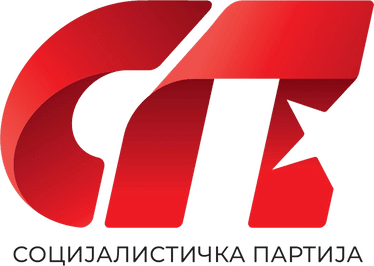
The original party leadership was made up of officers of the Bosnian Serb army. The SPRS was the main Serb opposition party against the SDS, but they shared the SDS's opinion that Republika Srpska should become part of Yugoslavia. The party's views changed over the years from radical Serbian nationalism towards a moderate democratic oriented party. For the September 1998 elections the SPRS joined the Sloga coalition (created by SNSD). In February 2000, however, SPRS left Sloga, because Dodik sacked SPRS' Deputy Prime Minister Gligoric.
In 2002 the SPRS split, when the youth of the party formed the DSP (Democratic Socialist Party) and later joined SNSD. At their last congress the SPRS clearly stated that they will never go in coalitions with SDS again. They also stated that their goal is to create a new image and to involve at least 30 percent of youth in the party boards and election lists. After these conclusions the leader, Zivko Radisic, resigned and left the party. The influence of the party on the political field today is marginal.
At the elections in 2006 the party lost its seat in the House of Representatives of BiH but gained 3.70 percent of the vote and retained its 3 seats in the elections to the National Assembly of Republic of Srpska. In the October 2010 elections they won 4 seats in the RS Assembly out of 83 seats. During the 2014 and 2018 elections the party increased in size again, winning 7 seats in the latest general election. In 2022, however, the party lost its only seat in the House of Representatives and retained 5 seats in the National Assembly of RS.
Other Parties

The mainly Bosniak party is in favour of Bosnia-Herzegovina as a decentralised but unitary state with ethnically mixed cantons. It advocates political and economic unity and cultural autonomy for the ethnic groups. The SDA was founded in 1990 by Alija Izetbegovic, Fikret Abdic, Adil Zulfikarpasic and Omer Behmen. In the first presidential elections in 1990 Fikret Abdic won the majority votes but he stepped down in favour of Izetbegovic. Later Abdic collaborated with the Serbs and formed his own state during the war and now is prosecuted for war crimes. Izetbegovic was an important political figure during the war in Bosnia.
During its existence, the party, like Izetbegovic, changed its political course. From a multi-ethnic federalist party, the SDA became an ethnic Muslim party. In 1996 one of the influential leaders in SDA, Haris Silajdzic left SDA and created the Party for B&H, thereby reducing SDA for 1/3. From 1996 till 2000 the Party for B&H was in coalition with the SDA and supported by the Liberal Party. On 13 October 2001 Izetbegovic stepped down as party leader of the SDA and Sulejman Tihic was elected to lead the party.
After that the party moved towards the political centre, becoming more open to non-Muslim Bosnians. In the 2006 elections, the SDA won a majority of seats in state (9 out of 42 seats), the Federation (28 out of 98) and cantonal parliaments and formed governments with SNSD, SBiH, HDZ BiH, HDZ 1990, NSRZB and PDP. The party slightly declined during the 2010 elections, but has maintained most of its support during the following 2014 and 2018 elections. In 2022 it once again became the country’s largest party. The party is currently led by Bakir Izetbegović, the only son of founder Alija Izetbegović. He lost the presidential elections in 2022.
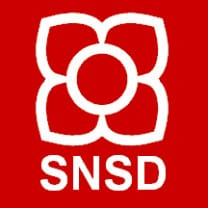
The Alliance of Independent Social Democrats (SNSD) was founded in 1992 by Milorad Dodik. He has been party leader ever since, holding the post of Republika Srpska’s (RS) Prime Minister (1998-2010) and President (since 2010). During the war Dodik propagated inter-ethnic tolerance and managed to increase support for his party. In these years Dodik was a protégé of the international community, which regarded him as a moderate politician who could decrease the influence of the nationalistic Serb Democratic Party (SDS), formerly led by Radovan Karadžić.
In 1996, the SNSD led the ‘Alliance for Peace and Progress’, the only Serb party that ran in the elections in both RS and the Bosniak-Croat Federation. In 1998 the party initiated ´Sloga´ (Concord) coalition, the main opposition block in RS against the nationalist SDS/SRS. ´Sloga´ won the elections and formed a new government. In the November 2000 elections, however, the SNSD suffered a crushing defeat by the nationalistic SDS. In 2000 a part of the Social Liberals of RS joined the SNSD (another part of Social Liberals joined SDP) and the SNSD declared itself as a party for the whole of BiH, setting up party branches in the whole country. In 2002 the SNSD merged with the Democratic Socialist Party of RS (DSP).
At the 2006 general elections the SNSD won conveniently, securing a majority in the Serb entity. Despite their social democratic orientation, the party set up a rather nationalist campaign to secure votes, presenting itself as the protector of Serb nationalist interests. The international community and other political parties in Bosnia have been accusing SNSD and its leader of slowing down the reforms and EU integration of the country. However, SNSD expressed their commitment to EU integration and argued that all reforms must be approved by all political actors and ethnic groups in the country. Due to nationalist rhetoric of its officials SNSD lost its international support and the party’s membership has been suspended by the Socialist International (SI).
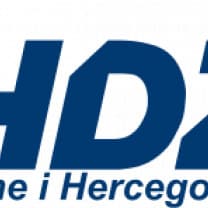
The conservative, Christian Democratic, nationalistic party was formed in 1990 at the first party convention held in Sarajevo. During the war, the moderate wing of the HDZ lost from the radical wing, which sought unification of Herceg-Bosna (the Bosnian Croatian republic established by ultra-nationalist Herzegovinian Croats during the war) with Croatia. The HDZ is striving for ethnic autonomy, varying from autonomy within the Federation B&H to a confederate structure with Croatia. This has occasionally led to conflicts with the High Representative.
HDZ split a few times, first in 2000 when Kresimir Zubak and Croats from northern Bosnia formed the New Croat Initiative. After that, several moderates were expelled from the party. When the OHR dismissed the president of HDZ from all political functions, Dragan Covic took over the leadership of the party in 2005. Between 1998 and 2001 he was the Deputy Prime minister and Minister of Finance of F BiH. Covic was the Croatian member of the Presidency on state level from 2002-2005, when he was dismissed by the HR Paddy Ashdown after he was indicted by the State Court of Bosnia and Herzegovina for financial malfeasance and misuse of office. In 2006 another group of members broke away and formed the HDZ 1990 out of discord with the policies of the HDZ and its leader.
The HDZ has participated in several Bosnian governments until 2000. They returned to power in 2002, where it remained until 2006. In the elections of 2006 the party joined the Croatian Coalition with the Croatian Party of Rights of BiH and the Croatian People's Union. Together they won 3 seats in the National Assembly and 8 seats in the entity of the Federation. In the latest elections the HDZ went alone and won 3 seats in the National Assembly and 12 seats in the parliament of the Federation. In later elections the party managed to remain one of the most influential political forces in the country, participating in the government after the 2014 and 2018 elections.
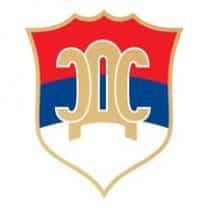
Until the September 1998 elections, the SDS was the leading Serbs party in the Republika Srpska. The party's ideological orientation is nationalistic. The party's sole preoccupation with the fate of Republika Srpska hampers any discussion on other political issues. During and directly after the Bosnian war, all the party's actions and positions seemed to revolve around its political leader, indicted war criminal Radovan Karadzic. His role during the war and political positions on most issues were unpredictable.
Karadzic was forced to resign from his positions in the party he helped to found, because in the Dayton Accords it was decided that people indicted by the Tribunal are not allowed to hold public posts, and are not allowed to run in any elections. Initially, neither the SDS nor Karadzic himself were inclined to obey this ruling, but with strong international pressure they did it to secure political life for the SDS. Even in the time of the Alliance for Change, the SDS had a strong position in RS.
In the 2006 general elections SDS gained 3 seats in the national House of Representatives and won 17 out of 83 seats in the parliament of Republika Srpska, becoming the second party in RS. In the 2010 elections the SDS won 4 seats in the national parliament and came second in the entity elections of RS winning 19 percent of the votes. After initially forming a government, it has served as an opposition party. It was one of the country’s largest winners during the 2014 elections, but lost some seats after 2018. It currently holds 16 seats in the Republika Srpska parliament. Mirko Šarović was the party’s leader from june 2019 until november 2022 when resigned after losing out on the Serb presidency. Since then, Milan Miličević has been the party's acting leader.

PDP is a moderate Serb nationalist party formed by Mladen Ivanic, a professor of Economy from Banja Luka University, in 2000. In just a few months before the elections in 2000 they gathered considerable support and as a result they became the second party after the SDS in RS.The PDP supports the idea of the state of Bosnia and Herzegovina, but decentralized and strictly according to the Dayton Peace Agreement. Their program aims at securing the position of the RS as a strong entity which has to protect the Serb national interests. The party has been supported by the international community. Most of PDP's members are former SDS members and supporters who were not satisfied with the economic reforms carried out by SDS. PDP became part of the Alliance for Change on state level in 2001.
After the elections in October 2002, PDP formed a government on state and RS level with support of SDS, SDA, S BiH and HDZ. Mladen Ivanic is former minister of foreign affairs. Former Minister for European Integrations - Dragan Mikerevic became Prime Minister of RS, but Ivanic still has strong influence on him. In the general elections of 2006, PDP became the third party in RS having 8 out of 83 seats in the parliament of RS, which number slightly declined in the 2010 elections to 7 seats. Mladen Ivanić, the party’s leader at the time, managed to be elected for the presidency of BiH, but lost the 2018 election. The party itself won though, and managed to increase its number of seats to 9.

Our Party (Naša stranka) is a social-liberal, multi-ethnic party founded in 2008. The party is active in both the Republica Srpska (RS) en Federation of Bosnia and Herzegovina (F BiH) and tries to break the dominance of nationalist parties within the Bosnian political system. Rule of law and closer ties with the EU are also important for NS. Until recently the party had no representation in the entities, but only on local level. In 2018 it managed to win 2 seats in the BiH’s House of Representatives. In 2022, they remained in the House of Representatives with 2 seats. In 2021, Edin Forto became the leader of the party after Predrag Kojovic left the position after 6,5 years.
4 Biographies
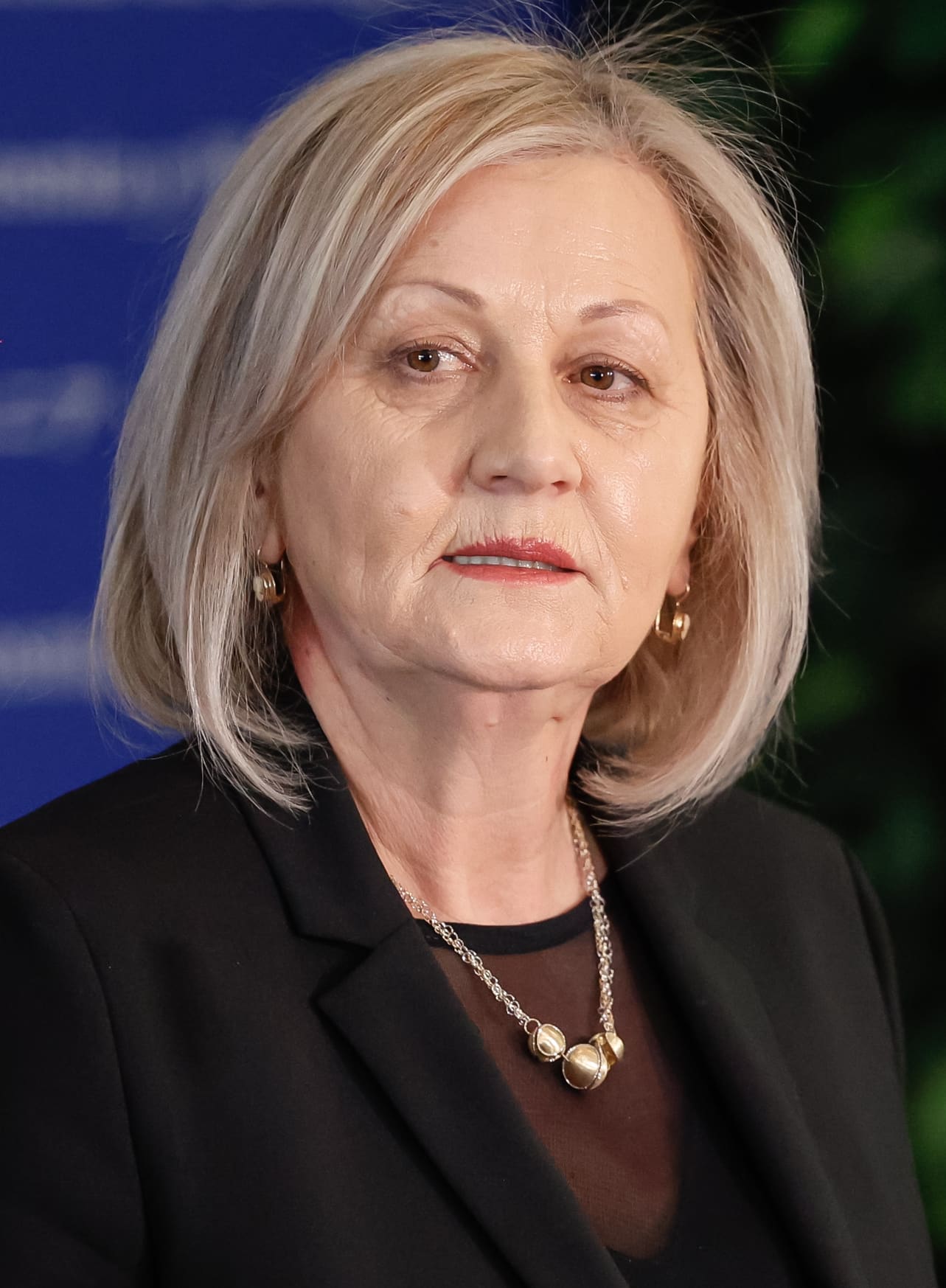
Born on 13 August 1961, Borjana Krišto is a Bosnian politician who, as a Bosnian Croat, is the Chairwomen of the Council of Ministers of Bosnia and Herzegovina since January 2023. From 2007 to 2011, she was the 8th president of the Federation of Bosnia and Herzegovina. She is the first woman to hold both positions.
Krišto grew up in Livno and has worked in the legal department of several companies. She holds a degree in law. She has also been a member of the Croation Democratic Union since 1995 and she has been a member of both the national House of Peoples and House of Representatives.
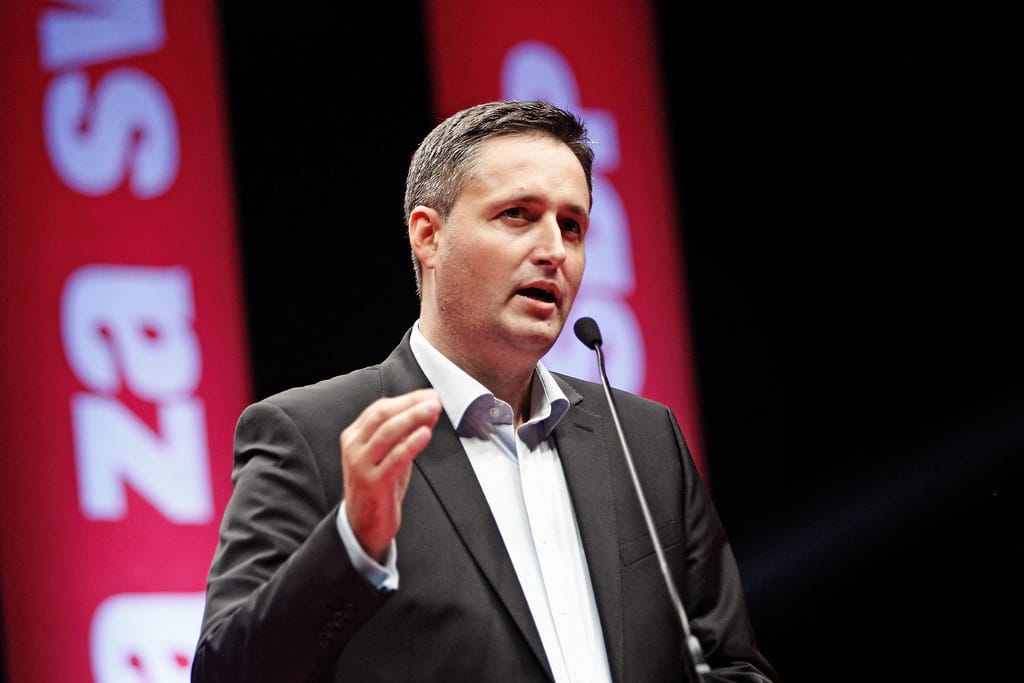
Born on 28 November 1975 in Tuzla, Denis Bećirović is a Bosnian politician, professor and historian who, as a Bosniak, is part of the Presidency of Bosnia and Herzegovina. Before that, he was a member of the national House of Peoples from 2019 to 2022. He is the current vice-president of the Social Democratic Party.
Bećirović has been a member of the Social Democratic Party since 1993. In 1998, he became a member of the federal parliament. Two years later, he joined the Tuzla cantonal assembly and was appointed to the federal House of Peoples. In the 2006 general elections, Bećirović was elected to the national House of Representatives. In the 2018 general elections, he ran for a seat in the presidency of Bosnia and Herzegovina as a Bosnian member, but was not elected. After the general elections, he became a member of the national House of Peoples.
In the 2022 general election, Bećirović again ran for a seat in the presidency as a Bosnian member and was elected, defeating former member of the presidency Bakir Izetbegović. Bećirović was sworn in as a member of the presidency on 16 November 2022.
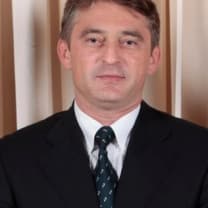
Željko Komšić (1964) was born in Sarajevo. He studied law at the University of Sarajevo and went to the School of Foreign Service at the University of Georgetown in Washington, USA. At the beginning of the 1992-1995 war, he joined the Army of BiH and in 1995, he received the highest military decoration of the BiH Army. From 2000 to 2001, he performed the duty of the Head of Municipality of New Sarajevo and in 2001, he became the first BiH ambassador to Serbia and Montenegro. Due to his disagreement with the policy, he resigned from the post of ambassador in 2002.
However, at the local elections in 2004, he was elected for another term as a Head of Municipality of New Sarajevo. He stayed on that post until the October elections 2006, when he became elected BiH President for the Croat seat in the rotating presidency as a candidate of the SDP which was prolonged after he was re-elected in the October 2010 elections. Komšić is a popular figure in BiH. His re-election of President of the Croatian seat in the rotating Presidency frustrated the HDZ who believe he is not representing the Croats, but is too pro-Bosniak. After the 2014 election he was replaced as President, but in the 2018 election managed to regain the position.
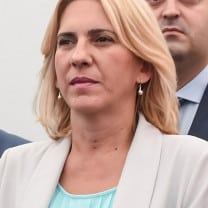
Željka Cvijanović is a Bosnian Serb politician and Serb member of Presidency representing the Bosnian Serb SNSD party. From 12 March 2013 to 19 Novmeber 2018, Cvijanocić acted as Prime minister of the Republika Srpska. Cvijanović is a professor of English language and literature and also has a master's degree in diplomatic and consular law from the Banja Luka Law school. During the 2010-2014 parliamentary term she was an expert member of the Committee for European Integration and Regional Cooperation of the National Assembly of Republika Srspka. Cvijanović became the President of Republika Srpska in December of 2018. After that she became the Serb member of the presidential trio in 2022.
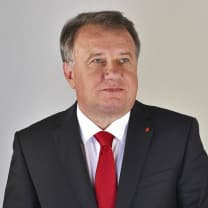
Nermin Nikšić was born on 27 December 1960 and served as prime Minister of Bosnia and Herzegovina from 2011 till 2015. Nikšić joined the Social Democratic Party (SDP) in 1993, a year later he became president of the SDp in Konjic. After Nikšić became deputy mayor of Konjic he soon resigned. Hebecame a member of the House of Representatives of Bosnia and Herzegovina. In 2006 he became the leader of the SDP faction in the House of Representatives. In March 2011, after the political crisis in Bosnia and Herzegovina, Nermin Nikšić was named Prime Minister of Bosnia and Herzegovina. He served that position for four years, after returning as a member of the house of representatives in 2018.
Nermin Nikšić is the 8th and current prime minister of the Federation of Bosnia and Herzegovina. He took office on 28 April 2023, following the 2022 general election. His predecessor Fadil Novalić refused to concede, and contests the change as illegal and unconstitutional, a view shared by the opposition
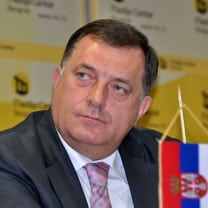
Milorad Dodik (1959) is born in Banja Luka and studied Political Science at the University of Belgrade. He was chairman of the executive board of the local assembly in Laktasi from 1986 to 1990. In the first multiparty elections in former Yugoslavia, held in 1990, Dodik was elected a member of the BiH parliament. During the 1992-1995 conflict in BiH he opposed the Serbian Democratic Party (SDS) that was led by Radovan Karadzic, in the National Assembly of Republica Srpska (RS) with his Independent Members of Parliament Caucus (IMPC).
In 2001 the IMPC merged into the Alliance of Independent Social Democrats (SNSD) and Dodik has acted as its president ever since. Dodik served his first term as the entity's (RS) prime minister from 1998 to 2001. On 28 February 2006, Dodik took up the post for the second time after the RS Parliament elected him, after voting out the previous Serbian Democratic Party-led government, headed by Pero Bukejlovic. Subsequently Dodik became President of Republika Srpska (RS) on 15 November 2010. He has served in various important posts in Bosnia’s complex political system, including as President of the Republika Srpska, a position he retained in 2022 after beating Jelena Trevic in the election. Dodik also served as the Serb Member of the Presidency of Bosnia and Herzegovina. As such, Dodik is an important political figure in BiH.
Initially, the SNSD leader was supported by the EU and the US as a moderate alternative to the dominance of the nationalistic SDS party. But once in power, Dodik proved to be a smart politician that knew how to balance between a pro-European attitude towards Western partners and nationalistic rhetoric within the entity, where he blocked reforms more than once.
In recent month, Dodik has been causing increased tensions in Republika Srpska, which you can read under '1.4: Tensions in Republika Srpska'
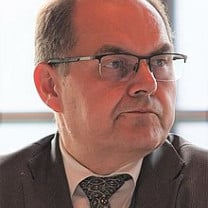
Christian Schmidt is the High Representative for Bosnia and Herzegovina since August 2021. He served as Minister of Food and Agriculture in Germany from 2014 to 2018 and was member of the Bundestag from 1990 to 2021. He succeeded the Austrian diplomat Valentin Inzko as High Representative. Inzko had resigned from the function.
In November 2021, Schmidt issued a stirring report on the ethnic and political tensions in BiH, warning that the country could break, leading into civil conflict.
Subscribe to our newsletter
